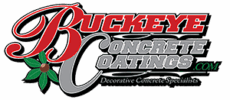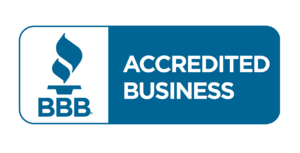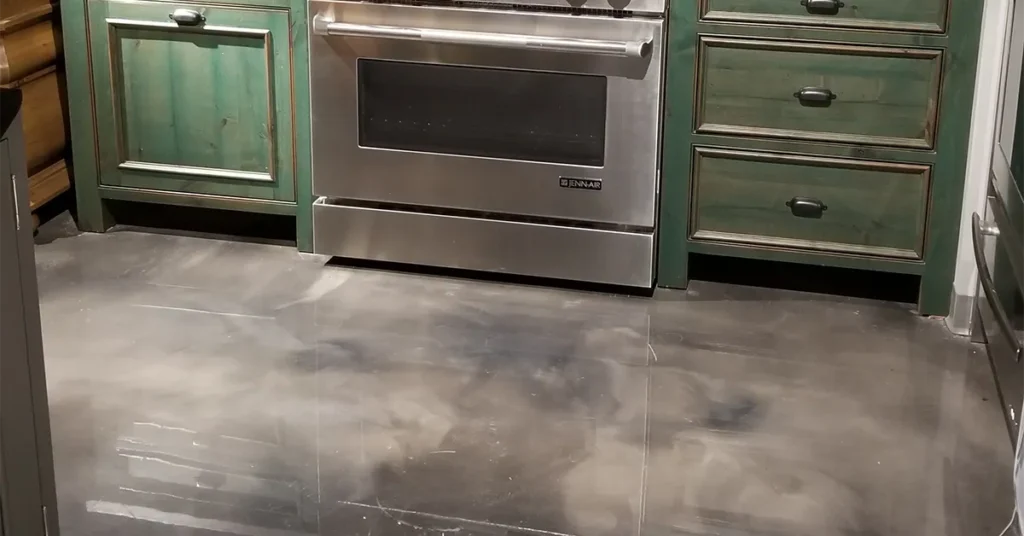Running a commercial kitchen is tough work. Every day, your floors take a beating from hot oil spills, heavy equipment drops, constant foot traffic, and harsh cleaning chemicals. When you’re serving hundreds or thousands of meals daily, your flooring needs to handle it all without breaking down.
That’s where commercial kitchen epoxy flooring comes in. This powerful coating system has become the go-to choice for restaurant owners, hotel kitchens, and food service facilities across the country. But what makes it so special, and how do you know if it’s right for your kitchen?
What Makes Commercial Kitchen Flooring So Challenging?
Before we dive into epoxy solutions, let’s talk about what your kitchen floors actually face every single day. Commercial kitchen floors need to be tough. Steady cleanings and flows of water, hundreds of spills, heavy cooking oils and large industrial tools, large amounts of foot traffic, and high temperatures are just a few of the things that your commercial kitchen floor will be up against.
Your floors also need to meet strict health department requirements. Cooking surfaces and floors need to be non-porous, smooth, and easily disinfectable, and they must be water-resistant and grease-proof while being easy to clean and sanitize regularly.
Think about it. In just one busy shift, your floors might encounter boiling water splashes, acidic tomato sauce, greasy fryer oil, dropped knives, rolling carts loaded with supplies, and gallons of cleaning solutions. Regular concrete or tile floors simply can’t handle this kind of abuse for long.
Why Commercial Kitchen Flooring Epoxy Stands Out
Epoxy flooring creates a seamless, durable surface that transforms your concrete floor into something much stronger. This solution offers exceptional durability, withstanding heavy foot traffic in your kitchen and even chemicals spilled everywhere without showing signs of wear.
Here’s what makes epoxy different from other flooring options:
Superior Adhesion: Epoxy bonds directly to your concrete, creating an incredibly strong chemical bond. Unlike tiles that can crack or come loose, epoxy becomes part of your floor structure.
Seamless Protection: Seamless, antimicrobial epoxy floors from Everlast Epoxy Systems resist stains, mold, and odors perfect for commercial kitchens and food service spaces. No grout lines mean no places for bacteria to hide.
Chemical Resistance: They are durable and can withstand the impact of dropped kitchen equipment, exposure to spilled boiling liquids, and acidic or alkaline substances over the long term.
The Science Behind Better Base Coats
Not all epoxy systems are created equal. Understanding base coats versus top coats is the key to a long-lasting commercial kitchen floor.
For your base coat, epoxy stands out because it takes time to cure properly. This slower curing process is actually a huge advantage. While the epoxy is still liquid, it penetrates deep into your concrete’s pores, creating an incredibly strong bond. This deep penetration gives you maximum adhesion strength, precisely what you need when heavy equipment and constant traffic stress your floors.
Most commercial epoxy systems also come with built-in moisture barriers. This matters more than you might think. Kitchens deal with constant moisture from cooking, cleaning, and steam. If moisture gets under your flooring, it can cause peeling and bubbling and create perfect breeding grounds for bacteria and mold.
Top Coat Protection That Actually Works
While your epoxy base coat handles the heavy lifting of adhesion and moisture protection, your top coat is what faces the daily battle against scratches, UV exposure, and chemical attacks.
This is where many commercial kitchen flooring systems use polyaspartic top coats.
Polyaspartic coatings are incredibly scratch-resistant and won’t yellow over time like other simple coatings can. They also cure quickly, which means less downtime for your kitchen during installation.
The combination approach works best: epoxy base coat for strength and adhesion, polyaspartic top coat for durability and protection. You get the best of both worlds.
Real Safety Benefits You Can Count On
Safety isn’t just about avoiding lawsuits. It’s about protecting your team and keeping your operation running smoothly. They prevent the growth of fungi and bacteria, resist extreme temperatures and chemicals, and can include an anti-slip coating for employee safety.
Slip Resistance: Modern epoxy systems can include anti-slip additives that provide traction even when wet. This is crucial because kitchen floors are often wet from cleaning, spills, or condensation.
Antimicrobial Properties: You can also expect antimicrobial features to help guard against the spread of bacteria and pathogens. This helps you maintain the sanitary conditions health inspectors demand.
Easy Emergency Cleanup: When accidents happen, you need floors that clean up fast. Epoxy’s seamless surface means spills can’t seep into cracks or porous areas where they might create long-term problems.
Health Code Compliance Made Simple
Meeting health department requirements doesn’t have to be complicated. Floors must be slip-resistant, easy to clean, and able to withstand the demands of a busy kitchen environment.
Epoxy flooring naturally meets most commercial kitchen requirements because it creates a non-porous, seamless surface that’s easy to sanitize. The lack of joints or seams means bacteria or food particles have no hiding places.
Many health inspectors actually prefer epoxy floors because they can see immediately if the surface is clean. There’s nowhere to hide problems, making inspections smoother for everyone.
Installation for Busy Kitchens
One of the biggest advantages of modern epoxy systems is faster installation and curing times. Many systems can be walked on within hours and be ready for full use within a day or two.
This matters because you can’t shut down your kitchen for weeks. The faster cure times of polyaspartic top coats especially help here, allowing you to get back to serving customers quickly.
Professional installation is crucial, though. The surface prep, mixing ratios, and application techniques all affect your final results. This isn’t a DIY project when your business depends on the outcome.
Maintenance Made Easy
One of the best things about commercial flooring epoxy is how easy it is to maintain once installed. Daily cleaning is straightforward: sweep, mop with appropriate cleaners, and you’re done.
The seamless surface means you won’t have to scrub grout lines or worry about moisture getting into cracks. You can use pressure washers or steam cleaners without damaging the surface for deeper cleaning.
Regular maintenance might include periodic reapplication of top coats in high-wear areas. Still, the base system should last for many years.
Making the Right Choice for Your Kitchen
Every kitchen is different, so the best flooring system depends on your specific needs. Consider these factors:
Traffic Level: Higher traffic areas need more robust systems with enhanced wear resistance.
Temperature Exposure: If you have ovens or fryers that create extreme heat, make sure your system can handle thermal shock.
Chemical Exposure: Different cuisines use different ingredients. Acidic foods require different protection than alkaline cleaning chemicals.
Budget and Timeline: Factor in both initial costs and long-term value, plus how much downtime you can afford during installation.
FAQs
How long does commercial kitchen flooring epoxy last?
Quality epoxy systems typically last 10-15 years with proper maintenance. High-traffic areas might need top coat touch-ups every 5-7 years, but the base system stays strong much longer. The key is choosing the right solids percentage and having a professional installation.
Can epoxy flooring handle the extreme temperatures in commercial kitchens?
Yes, properly formulated commercial kitchen flooring epoxy can handle temperatures from freezing up to 200°F. The system expands and contracts with temperature changes without cracking. For areas near fryers or ovens, special heat-resistant formulations are available.
How quickly can we get back to normal operations after installation?
Most modern epoxy systems allow foot traffic within 12-24 hours and full operation within 2-3 days. Polyaspartic top coats cure especially fast, reducing downtime. However, timing depends on temperature, humidity, and the specific products used.
What’s the difference between epoxy and other commercial kitchen flooring options?
Unlike tile or vinyl, epoxy creates a seamless surface with no grout lines where bacteria can hide. It bonds directly to concrete rather than sitting on top like other materials, making it more durable, easier to clean, and better at meeting health department requirements.
How much does commercial kitchen epoxy flooring cost compared to alternatives?
Initial costs vary widely based on kitchen size, existing floor condition, and system complexity. While epoxy might cost more upfront than basic tile, it often costs less over time due to lower maintenance needs and a longer lifespan. Most commercial kitchens see payback within 3-5 years.
Does epoxy flooring meet health department and food safety requirements?
Yes, properly installed commercial kitchen flooring epoxy meets or exceeds most health department standards. The seamless, non-porous surface is easy to sanitize and provides no hiding spots for bacteria. Many health inspectors actually prefer epoxy floors because they’re easier to assess during inspections.
Conclusion
Commercial kitchen epoxy flooring isn’t just about having nice-looking floors. It’s about creating a safer, more sanitary, and more efficient work environment that can handle whatever your kitchen throws at it.
Epoxy Flooring: Best for large kitchens with heavy equipment, thanks to its seamless, durable surface. When you combine a properly installed epoxy base coat with a protective polyaspartic top coat, you get a flooring system that can handle the demands of commercial food service while meeting health department requirements.
The investment in quality commercial kitchen flooring epoxy pays off through reduced maintenance costs, fewer safety incidents, easier cleaning, and floors that look professional even after years of heavy use. For busy commercial kitchens where durability and safety matter most, epoxy flooring continues to prove itself as the smart choice.
Your floors are the foundation of your kitchen operation. Make sure they’re built to handle whatever your business demands.


